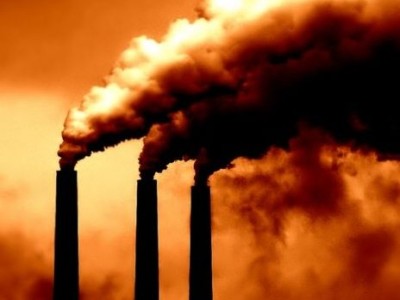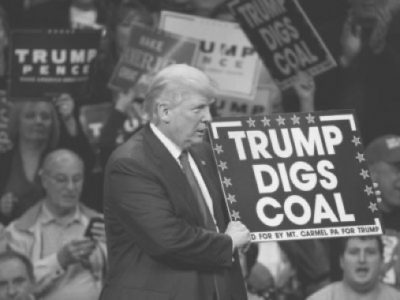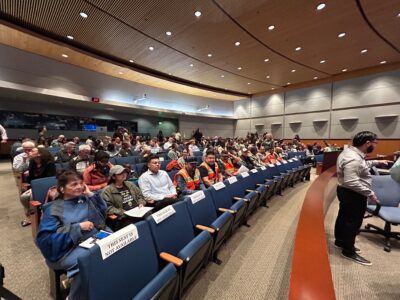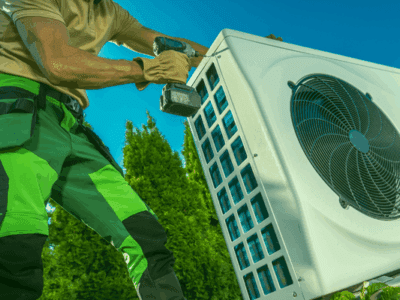Air Quality
Does the Law Require Cost-Benefit Analysis?
According to the D.C. Circuit, the answer is no.
Putting aside the particulars of the case, it seems wrong to apply the same standard (monetized cost-benefit analysis) to every provision in environmental law. These provisions have different language, reflecting differences in congressional priorities. Some provisions, for instance, may be designed push industry to find innovative solutions; others may reflect Congress’s value judgments or a desire to limit EPA’s discretion. We shouldn’t assume that the myriad differences in statutory language are irrelevant and that Congress wanted agencies to adopt the same method of making decisions in every case.
CONTINUE READINGA Very Bad House Vehicle Pollution Bill
The Fuel Emissions Freedom Act may be a stunt, but it’s worth examining
It can be hard to keep track amid all the hair-raising developments in Congress and at the Supreme Court, but last week, a group of House Republicans led by Roger Williams of Texas introduced the Fuel Emissions Freedom Act, hot on the heels of the purported (illegal) termination of California’s vehicle emissions standard waiver. This freedom-to-pollute …
Continue reading “A Very Bad House Vehicle Pollution Bill”
CONTINUE READINGThe Emperor’s New Endangerment Theory (Part II)
To justify a decision not to regulate CO2 from power plants, EPA had to twist statutory language beyond all recognition.
According to EPA, carbon emissions from the U.S. power sector are too insignificant to warrant regulation. This is a bizarre conclusion: U.S. power sector’s emissions are around 6.5 billion tons, just below Russia’s total emissions from all sectors. To reach this conclusion, EPA has proposed a novel reading of the Clean Air Act. In EPA’s view, before it could regulate those emissions, it would first have to make a formal finding that they “cause or significantly contribute” to climate change, and (2) that this has to be judged on the basis of the sector’s percentage of total global carbon emissions. The statute doesn’t say either of those things.
CONTINUE READINGA Path Forward for Vehicle Electrification?
It’s been a rough few months for vehicle electrification efforts in the United States. While Congress swaps proposals to eliminate federal electric vehicle purchase, manufacturing, and charging incentives in order to “pay for” massive tax cuts for the wealthy, President Trump last week signed a Congressional Review Act resolution that claims to eliminate California’s nation-leading …
Continue reading “A Path Forward for Vehicle Electrification?”
CONTINUE READINGImmigration Raids are an Attack on Climate
The Drain is a weekly roundup of environmental and climate news from Legal Planet.
It’s hard to watch the Trump administration test drive authoritarianism in California. Since the inauguration, I’ve found solace in slowly rewatching The West Wing, a good bedtime story for anyone who feels nostalgia for partisan politics of yesteryear. Anyone else doing this? It’s uncanny how my rewatching has lined up with real world events. In …
Continue reading “Immigration Raids are an Attack on Climate”
CONTINUE READINGWhy Do Heat Pumps Have a Bad Rap? Lies
The Drain is a weekly roundup of environmental and climate news from Legal Planet.
I just listened to dozens of people tell me that heat pumps don’t work, may cause homelessness, and can bankrupt small businesses. This was shocking news to me, in no small part because I’m currently in the process of installing a heat pump in my condo. Obviously, I don’t want to waste money, sleep on …
Continue reading “Why Do Heat Pumps Have a Bad Rap? Lies”
CONTINUE READINGCan Trump Save U.S. Coal? Not likely.
“Beautiful clean coal”, as Trump calls it, is inexorably declining.
The title of one of Trump’s executive orders is “Reinvigorating America’s Beautiful Clean Coal Industry.” That order says, “it is the policy of the United States that coal is essential to our national and economic security.” But Trump’s efforts seem unlikely to make a dent in the long-term, global malaise of the coal industry, or its sharp decline in the U.S.
CONTINUE READINGWhy Did SoCal Air Regulators Reject Clean Air Rules?
SCAQMD’s failure to pass Rules 1111 and 1121 on water heaters and furnaces is a win for gas industry disinformation and a loss for public health.
After 6 hours of public comment and discussion in a packed auditorium, Southern California air quality regulators on Friday rejected a pair of proposals that would have reduced harmful pollution from gas furnaces and water heaters. I watched a livestream of the 6-hour meeting (and provided live updates and commentary on Bluesky). Here’s context and …
Continue reading “Why Did SoCal Air Regulators Reject Clean Air Rules?”
CONTINUE READINGThese SoCal Clean Air Rules are Being Smeared
Legitimate affordability concerns are being weaponized by the gas lobby and its supporters ahead of an important SCAQMD vote to encourage cleaner appliances.
After years of rule development, Southern California air quality regulators are set to vote tomorrow on a pair of proposals that would reduce harmful pollution from gas furnaces and water heaters. A coordinated campaign by opponents including SoCalGas is painting these relatively moderate rules as a “ban” on gas appliances and an attack on middle-class …
Continue reading “These SoCal Clean Air Rules are Being Smeared”
CONTINUE READINGSupply-Side Regulations & Clean Vehicles
As Congress votes to undermine California’s sovereignty to set supply-side standards on polluting vehicles, CLEE’s research shows why these policies are so effective
In May 2025, both the U.S. House and Senate passed resolutions to revoke California’s Clean Air Act waivers, which allow the state to enforce stricter vehicle emissions rules than federal standards (see Ann Carlson’s post on this issue). If signed by the President—and if successful in the face of court challenges to their dubious legality—these …
Continue reading “Supply-Side Regulations & Clean Vehicles”
CONTINUE READING









